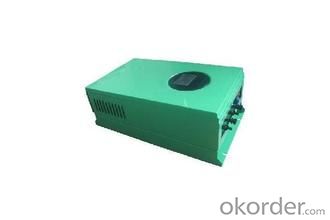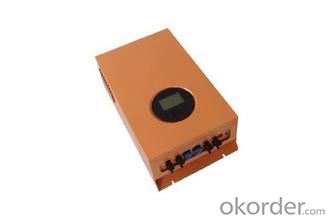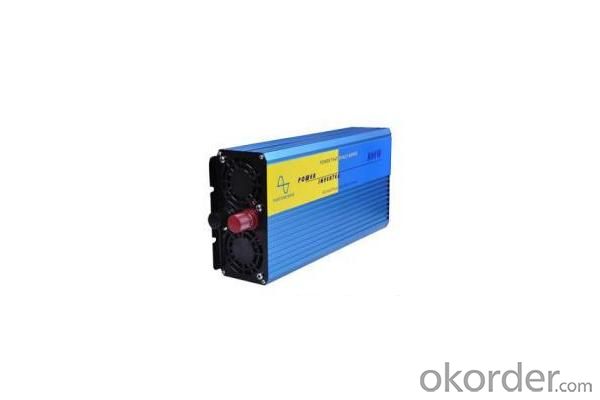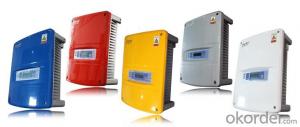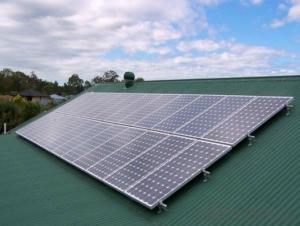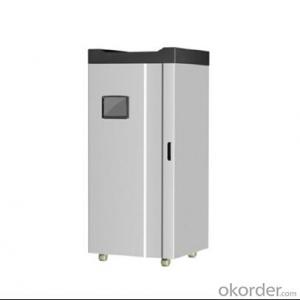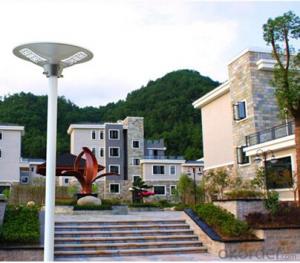9kw Solar Inverter
- Loading Port:
- China Main Port
- Payment Terms:
- TT OR LC
- Min Order Qty:
- -
- Supply Capability:
- -
OKorder Service Pledge
OKorder Financial Service
You Might Also Like
SPECIFICATIONS:
A solar inverter, or PV inverter, converts the variable direct current (DC) output of a photovoltaic (PV) solar panelinto a utility frequency alternating current (AC) that can be fed into a commercial electrical grid or used by a local, off-grid electrical network. It is a critical component in a photovoltaic system, allowing the use of ordinary AC-powered equipment. Solar inverters have special functions adapted for use with photovoltaic arrays, including maximum power point tracking and anti-islanding protection.
Solar (PV) grid tie (grid connected) inverter
Grid tie inverter is one of the crucial parts in the PV system to feed the electricity to the public grid. Thanks to its new technology and novel algorithm, Ginlong GCI series grid tie inverters is one of the most efficient and reliable grid tie inverters in the world.
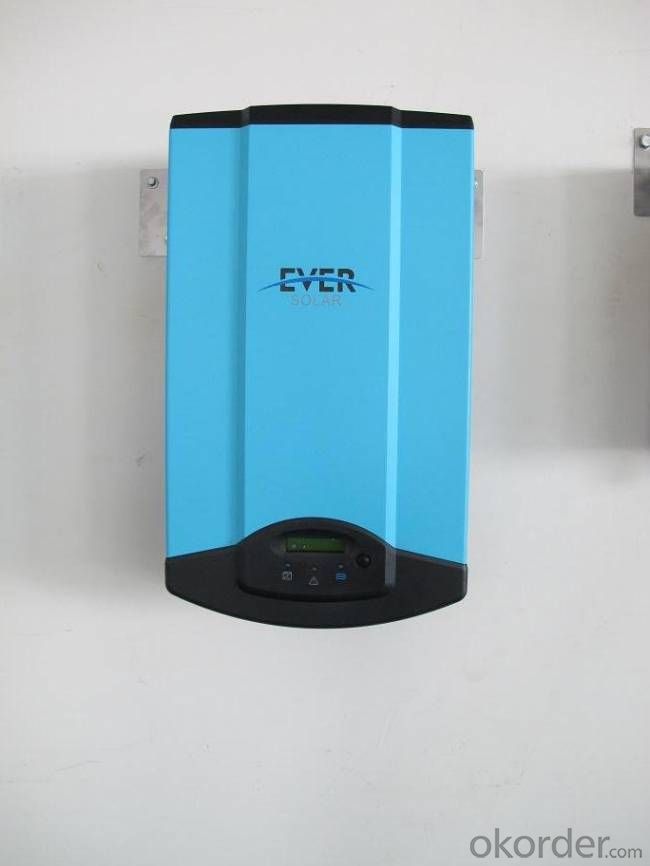
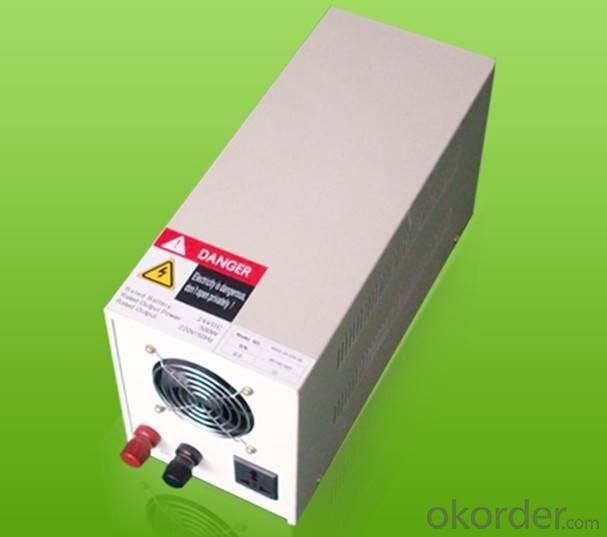
- Q: Can a solar inverter be used with solar-powered streetlights?
- Yes, a solar inverter can be used with solar-powered streetlights. The solar inverter converts the direct current (DC) generated by the solar panels into alternating current (AC) that is required to power the streetlights. This enables the solar-powered streetlights to function efficiently and effectively.
- Q: How does a solar inverter handle grid voltage variations?
- A solar inverter is equipped with a voltage regulation mechanism that allows it to handle grid voltage variations. It continuously monitors the grid voltage and adjusts the output voltage of the inverter accordingly to ensure a stable and consistent supply of electricity. This regulation mechanism helps to protect the inverter and the connected solar panels from any potential damage that may occur due to fluctuations in the grid voltage.
- Q: What is the maximum number of parallel inverters that can be connected?
- The maximum number of parallel inverters that can be connected depends on various factors such as the power rating, capacity, and design of the inverters, as well as the electrical system they are being connected to. It is best to consult the manufacturer's specifications and guidelines to determine the maximum number of parallel inverters that can be safely connected.
- Q: Can a solar inverter be used with different brands of solar panels?
- Yes, a solar inverter can generally be used with different brands of solar panels as long as they have compatible specifications and operating voltages. However, it is important to consult the manufacturer's guidelines or seek professional advice to ensure compatibility and optimal performance.
- Q: How does a solar inverter handle voltage dips and swells?
- A solar inverter is designed to handle voltage dips and swells by constantly monitoring the grid voltage. When a dip or swell occurs, the inverter's control system adjusts the output voltage accordingly to maintain a stable output. This is done through the use of power electronics and control algorithms that regulate the voltage and frequency of the inverter's output.
- Q: How does the total harmonic distortion affect the performance of a solar inverter?
- The total harmonic distortion (THD) can significantly impact the performance of a solar inverter. Higher levels of THD can cause electrical noise, which can interfere with the operation of sensitive equipment connected to the inverter. This can result in reduced efficiency, increased heat generation, and potential damage to the connected devices. Additionally, high THD can also lead to power quality issues, such as voltage and current distortions, which can further degrade the performance of the solar inverter and its associated components. Therefore, it is crucial to minimize THD to ensure optimal performance and reliability of the solar inverter system.
- Q: Can a solar inverter be used with a solar-powered heating system?
- Yes, a solar inverter can be used with a solar-powered heating system. The solar inverter is responsible for converting the direct current (DC) generated by the solar panels into alternating current (AC) that can be used to power various appliances, including a heating system. By connecting the solar inverter to the solar panels and then to the heating system, the electricity produced by the solar panels can be utilized to power the heating system, making it more energy-efficient and cost-effective.
- Q: Can a solar inverter be repaired or replaced if it malfunctions?
- Yes, a solar inverter can be repaired or replaced if it malfunctions. In many cases, minor issues can be fixed through repairs, such as replacing faulty components or updating firmware. However, if the inverter is extensively damaged or beyond repair, it may need to be replaced with a new one. Ultimately, the course of action will depend on the severity of the malfunction and the expertise of the technician assessing the situation.
- Q: How does a solar inverter affect the overall efficiency of a solar system?
- A solar inverter plays a crucial role in converting the direct current (DC) produced by solar panels into alternating current (AC) that can be used to power household appliances and feed into the electrical grid. It directly affects the overall efficiency of a solar system by maximizing the power output, reducing energy losses during conversion, and ensuring optimal functioning of the system. A high-quality solar inverter can significantly improve the efficiency of a solar system, resulting in increased energy generation and cost savings.
- Q: Can a solar inverter be used in a solar-powered data center?
- Yes, a solar inverter can be used in a solar-powered data center. A solar inverter is an essential component that converts the DC (direct current) electricity generated by solar panels into AC (alternating current) electricity that can be used to power various devices, including data center equipment. By utilizing a solar inverter, a solar-powered data center can efficiently harness the electricity generated by solar panels and integrate it into its power supply system.
Send your message to us
9kw Solar Inverter
- Loading Port:
- China Main Port
- Payment Terms:
- TT OR LC
- Min Order Qty:
- -
- Supply Capability:
- -
OKorder Service Pledge
OKorder Financial Service
Similar products
Hot products
Hot Searches
Related keywords



